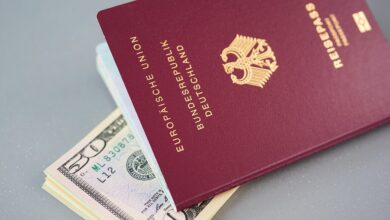The Cost of Raising Children in Greece: A Comprehensive Guide

Raising children is a rewarding yet financially demanding endeavor, and the costs can vary significantly depending on where you live. In Greece, the cost of raising children is relatively affordable compared to many Western European countries or the United States. However, it still requires careful financial planning, especially given Greece’s economic challenges in recent years. This guide explores the key expenses associated with raising children in Greece, from education and healthcare to daily living costs.
1. Housing Costs
Housing is one of the largest expenses for families, but Greece offers relatively affordable options compared to other European countries.
a. Renting vs. Buying
- Renting: Monthly rent varies by location. In Athens, a three-bedroom apartment in the city center costs around €800–€1,200, while outside the city center, it ranges from €500–€800. Smaller cities and rural areas are significantly cheaper.
- Buying: Property prices in Greece are among the lowest in Europe. A family home in a suburban or rural area can be purchased for €100,000–€200,000, depending on size and location.
b. Utilities
- Monthly utility bills (electricity, water, heating, internet) for a family of four typically range from €150–€250, depending on energy usage and location.
2. Education Expenses
Education costs depend on whether you choose public, private, or international schools.
a. Public Schools
- Public education in Greece is free for all children, including those of foreign residents. While tuition is covered, parents may need to pay for books, uniforms, and extracurricular activities.
- Annual costs for supplies and miscellaneous fees range from €200–€500 per child.
b. Private Schools
- Private schools offer smaller class sizes and often follow international curricula. Tuition fees vary widely:
- Greek private schools: €3,000–€8,000 annually.
- International schools (e.g., British, American, French): €8,000–€15,000 annually.
c. University Education
- Public universities in Greece are tuition-free for EU citizens, but non-EU students must pay fees ranging from €1,500–€4,000 per year.
- Private universities charge higher fees, typically starting at €6,000 annually.
3. Healthcare Costs
Greece has a mixed healthcare system, combining public and private services.
a. Public Healthcare
- Public healthcare is available to all legal residents, including children. To access it, families must contribute to Greece’s social security system (IKA). Contributions are income-based, averaging 6–10% of earnings.
- Routine medical care, vaccinations, and hospital visits are generally free or low-cost.
b. Private Health Insurance
- Many families opt for private health insurance to avoid long wait times and access better facilities. Premiums for a family of four typically range from €1,500–€3,000 annually.
c. Medications and Dental Care
- Prescription medications are subsidized under the public system, reducing out-of-pocket costs.
- Dental care is not fully covered by public insurance, so families often pay privately. Basic dental check-ups cost €30–€60, while orthodontic treatments can exceed €2,000.
4. Childcare and Early Education
Childcare is an important consideration for working parents.
a. Daycare Centers
- Public daycare centers (vrefopoleia) are subsidized but have limited availability. Fees range from €100–€300 per month.
- Private nurseries and daycare centers charge €300–€600 monthly, depending on location and quality.
b. Babysitters and Nannies
- Hiring a babysitter costs €8–€12 per hour. Full-time nannies earn €800–€1,200 monthly, including taxes and benefits.
c. Kindergarten
- Public kindergartens are free, but spaces are limited. Private kindergartens charge €200–€500 monthly.
5. Food and Daily Living Expenses
Food costs in Greece are moderate, making it easier to feed a growing family without breaking the bank.
a. Groceries
- Monthly grocery bills for a family of four average €400–€600, depending on dietary preferences and shopping habits.
- Local markets offer fresh produce at lower prices than supermarkets.
b. Dining Out
- Eating out is affordable compared to other European countries. A meal at an inexpensive restaurant costs €8–€15 per person, while fast food meals start at €5.
c. Clothing and Personal Care
- Children’s clothing is reasonably priced, with budget retailers like H&M and Zara offering affordable options. Annual clothing expenses for a child range from €200–€500.
6. Extracurricular Activities and Entertainment
Extracurricular activities enrich children’s lives but add to the overall cost of raising them.
a. Sports and Hobbies
- Enrolling a child in sports (e.g., soccer, swimming, dance) costs €30–€100 monthly per activity.
- Music lessons or art classes range from €50–€150 monthly.
b. Family Entertainment
- Family-friendly activities like visiting museums, zoos, or amusement parks are affordable. Entry fees typically range from €5–€15 per person.
- Movie tickets cost €8–€12 per adult and slightly less for children.
7. Transportation Costs
Transportation expenses depend on your lifestyle and location.
a. Public Transport
- Monthly public transport passes for adults cost €30–€40 in major cities like Athens and Thessaloniki. Children under 6 travel free, while older children receive discounts.
b. Owning a Car
- Owning a car involves fuel, insurance, maintenance, and parking costs. Monthly expenses average €200–€400.
8. Additional Considerations
a. School Supplies and Technology
- Back-to-school shopping for books, stationery, and electronics can cost €100–€300 annually per child.
- Laptops or tablets for schoolwork may add another €300–€800 to your budget.
b. Holidays and Travel
- Domestic travel within Greece is affordable, with ferry tickets and accommodations costing €100–€300 per person for a weekend getaway.
- International flights and vacations will depend on your destination and preferences.
9. Financial Support for Families
The Greek government provides some financial assistance to families:
a. Child Allowance
- Families receive a monthly child allowance based on income and the number of children. For example:
- One child: €40–€70 monthly.
- Two children: €80–€140 monthly.
- Three or more children: Higher amounts, with additional subsidies for large families.
b. Tax Deductions
- Parents can claim tax deductions for dependent children, reducing their taxable income.



